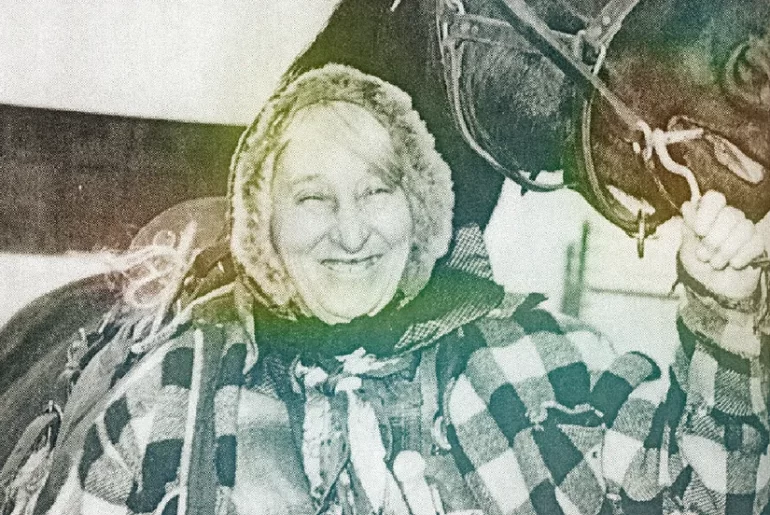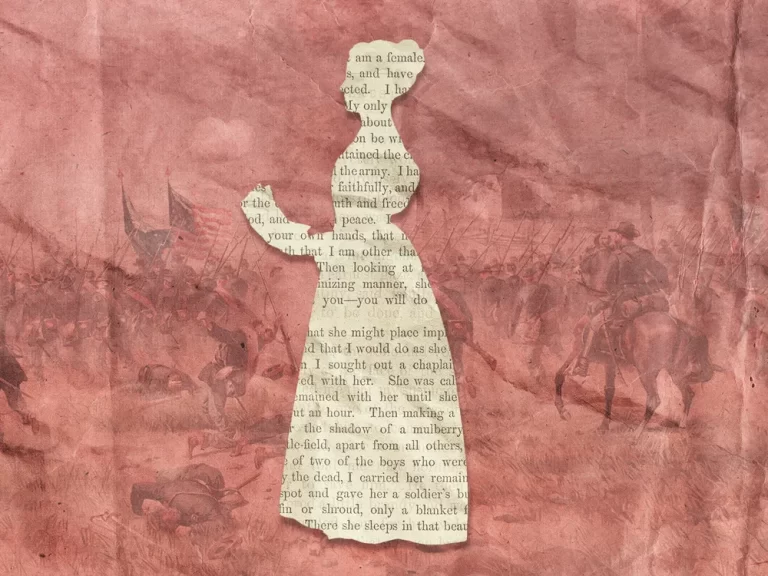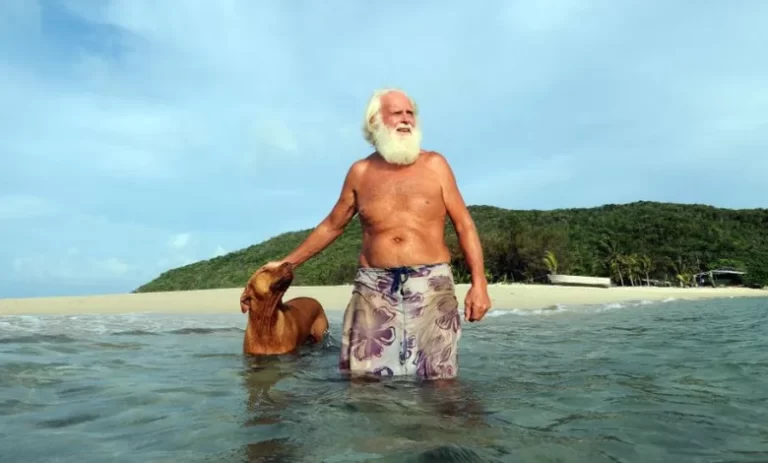Annie Wilkins Amazing Story: The Ride of Her Life
The “Dying” Woman Who Ran Away From Home And Saved Her Own Life
This is the story of Annie Wilkins, a woman who faced a tough diagnosis and decided to take life into her own hands. At 63 years old, her doctor gave her a grim prognosis: she had just two years to live. After battling pneumonia and discovering a troubling spot on her lung, the doctor wasn’t optimistic about her future.
He suggested she take it easy and even offered to help her get into a state-funded retirement home, knowing she didn’t have much money. Annie appreciated the offer but didn’t feel ready to give up. So, after their appointment, the doctor drove her back to her farm, acknowledging her hard work and suggesting it might be time to take a break.
It’s surprising how quickly things can turn around…
When the doctor drove off, the boys from the nearby farm brought back Annie’s little doggie, Depeche Toi, which means “hurry up” in French. Annie kissed her furry friend with tears in her eyes, feeling overwhelmed. She looked around at her humble dwelling—it wasn’t much of a house, just an old shack. The farmhouse her granddaddy built had burned down long ago, leaving her with this small, drafty place. Annie didn’t have electricity, relying on a pot belly stove for warmth and a well for water.
It’s amazing how quickly things can change. Just a few months ago, life seemed promising. The year 1952 had brought a bountiful harvest, allowing Annie and her Uncle Waldo to invest in some livestock and poultry. They were hopeful for the future, anticipating the profits from selling cattle, pigs, and eggs. But then winter arrived, and Annie found herself struggling to cope.
Breathing became painful, like sharp ice in her lungs. She pushed through, caring for the animals and working tirelessly despite feeling unwell. Then, disaster struck—a blizzard hit, leaving Annie and Uncle Waldo stranded. The neighbor boys came to their rescue, but Annie was diagnosed with pneumonia.
To cover the medical bills, they had to sell everything—the livestock, the poultry, everything they had worked so hard for. And to make matters worse, Uncle Waldo didn’t make it. Alone and facing a grim prognosis, Annie was left to confront her mortality.
She’d never really been conventional
Working herself to the bone was never her plan in life. She only went to school until sixth grade, then had to quit to help run the family farm. They had a small farm in Maine, far from the main road. It had been her grandfather’s, then her parents’. She grew up watching them work tirelessly, scraping by.
That life wasn’t for her, so she left home as soon as she could and joined the circus as a bareback rider. But when she received a letter saying her mother was sick, she returned home.
Uncle Waldo wasn’t really her uncle; he had worked on the farm with her father and later became her mother’s partner. After her parents passed away, it was just Annie and Uncle Waldo. They were so poor that Annie had to ride a mule to town for work to support the farm. People in town even started calling her “Jackass Annie” because of it.
She didn’t fit into society’s idea of how a woman should act. She was too bold, too outspoken, and had been divorced twice. The last husband wanted her to give up the farm, but she refused. It was her mother’s legacy to her.
Annie was never part of high society, but then again, people who are dirt poor rarely are.
The journey of a lifetime…
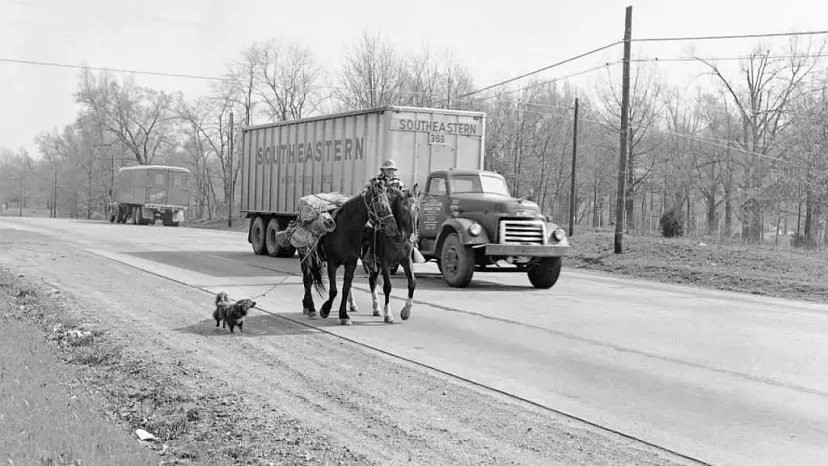
As Annie stood in her small house, her little doggie darting around her feet, she couldn’t shake a thought. Her mother, working tirelessly on the farm, always talking about seeing the Pacific Ocean one day. But she never got the chance, working until she passed away.
Annie was determined to fulfill her mother’s dream. So, she decided to mortgage her farm and bought a retired racehorse named Tarzan. In November 1954, she put on men’s dungarees, packed a few clothes, and set off for California with her horse and her little doggie.
With only a bedroll and some clothes, Annie embarked on her journey. She hung pails of feed from the horse using twine, hoping that people across America would be kind to an old woman traveling alone to fulfill her deceased mother’s wish.
If you search for Annie Wilkins on the internet, here’s what you’ll find.
People were really kind to her. They gave her food and places to sleep. Some small towns even let her stay in their jails overnight. Hotels offered her rooms for free. Farm families welcomed her with open arms, providing food, shelter, and even feed for her horse. Some people gave her money, and one generous farmer even gave her another horse.
Day after day, she kept riding, no matter the weather. Sometimes her little doggie rode on her horse with her, and other times he trotted alongside on a leash made from her old clothesline. She traveled over mountains and through valleys, encountering all sorts of people along the way. In Arkansas, a man fell in love with her and asked her to marry him, but she declined and continued her journey.
Coming from a rural farm, she had never seen so many cars on the streets of big cities, which frightened her horse. She was interviewed by journalists who were fascinated by her incredible journey on horseback.
It took her a year and 23 days, but she finally reached her destination. When she stood in front of the Pacific Ocean, she was filled with awe and said a prayer for her mama.
Now, here’s something that doesn’t get much attention…
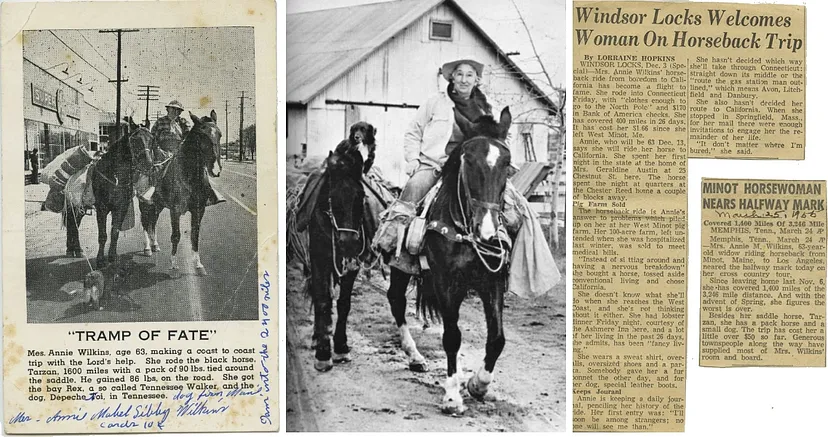
When Annie began her journey, she felt like she was at the end of her rope. Slumped over her horse, she trudged along, hoping strangers would be kind to a poor old woman with little money and not much life left. She even made fun of herself, calling herself an old frog on a lily pad, thinking her dream was foolish and relying on strangers for help.
But as she traveled, something changed. People looked at her in amazement, inspired by her journey. They didn’t see her as just “Jackass Annie” ignoring her doctor’s orders; they saw her as an inspiration. With each passing mile, Annie sat up taller in her saddle, feeling a sense of pride she hadn’t felt before. People cheered her on, journalists interviewed her, and she even sold self-portraits and postcards to fund her journey.
In one interview, she spoke candidly about her past, admitting that her second husband left because she refused to give him the farm. She realized that leaving him and setting out on this journey was the best decision she ever made.
Along the way, Annie was invited to speak at a school in Missouri, where she shared her story with students and newspapers covered the event. When she finally reached the Pacific Ocean, tears of pride and joy filled her eyes.
Annie wasn’t the same woman who left the farm over a year ago.
The doctor was wrong…

Annie stayed in California for two years. She had dinner with Art Linkletter and became a bit of a celebrity, appearing in newspapers as an inspiration.
After those two years, she returned to Maine, but not to her farm. The government had taken it for back taxes, but Annie wasn’t bothered. She stopped by Minot, Maine for a visit, dressed up in nice clothes. Some people still recognized her and called her “Jackass Annie,” but she didn’t let it bother her and just kept moving forward.
“When Mes Annie returned to Minot, she was wearing a dress, a hat, and gloves — Ma didn’t even recognize her!” — Local Minot Resident (source)
Annie went to live with her close friend, Mina Titus Sawyer, in Whitefield, Maine. They had been friends for a long time.
Ten years later, Annie made up her mind to turn her journal, photos, and postcards into a book. She thought, why not be an author? After all, she had traveled 7000 miles on horseback all by herself. So, she began to write.
Her book was published in 1967. She titled it “Last of the Saddle Tramps.” And there it was, her name right on the cover. She had become a published author!
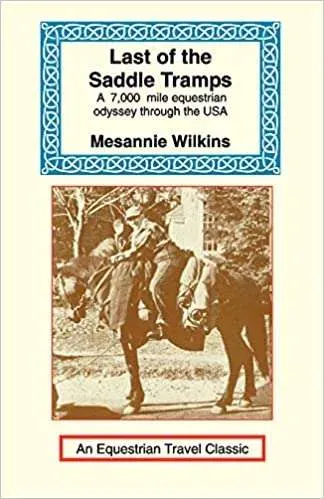
It turns out, the doctor was mistaken. Annie Wilkins lived for 24 years longer than what he originally thought.
Instead of just sitting around in a retirement home as the doctor suggested, Annie traveled thousands of miles on horseback, saw the Pacific Ocean, and even wrote a book.
Annie Wilkins passed away in February 1980, just before turning 89. She was laid to rest in her family plot in Maple Grove Cemetery in Minot, Maine.
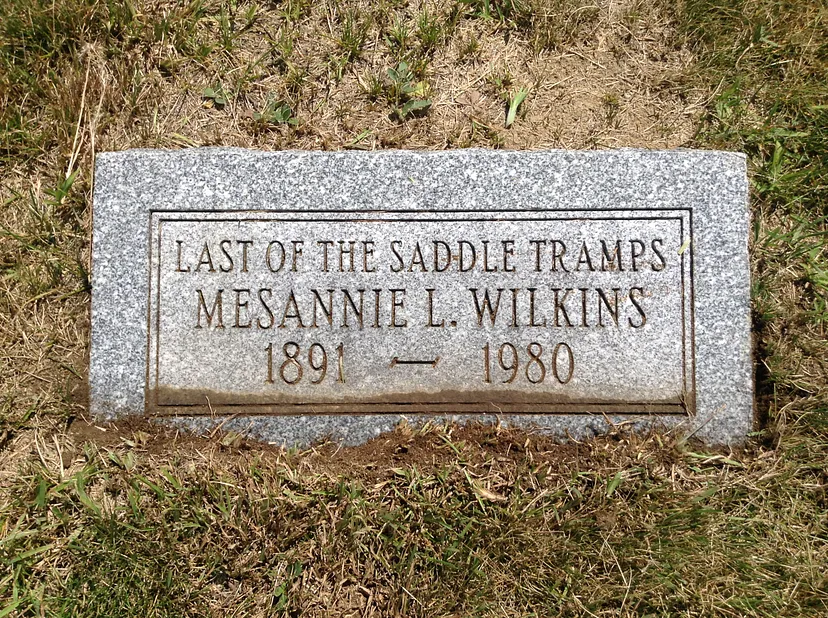
“Here’s something about the future: you can’t reach it just by thinking about it. You’ve got to take one step at a time, and the toughest part is taking that very first step.” — Annie Wilkins
Source: medium.com
Also read this articles 👇
